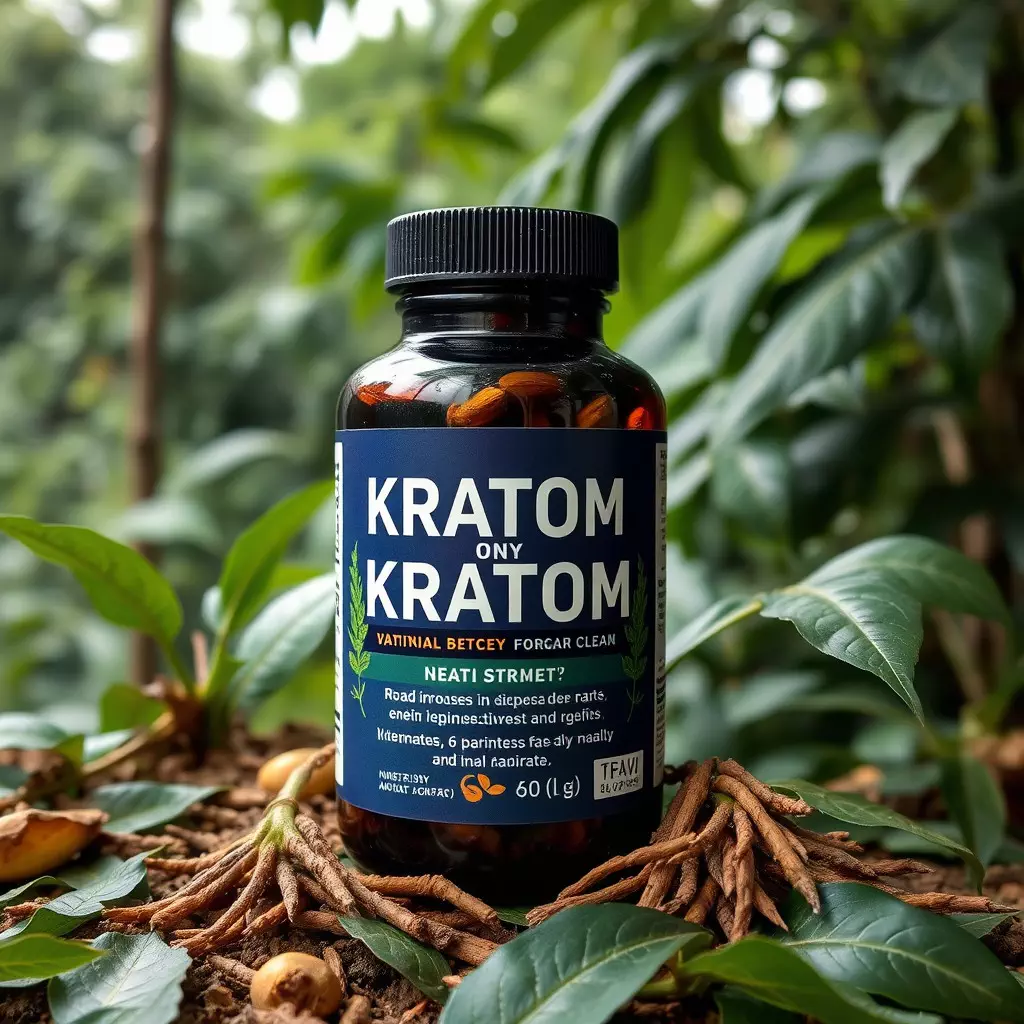Inflammation reduction with kratom: This natural herb from Mitragyna speciosa offers a promising alternative for managing chronic pain linked to inflammation, such as arthritis and fibromyalgia. Kratom's active compounds mitragynine and 7-hydroxymitragynine interact with opioid receptors, providing analgesia and potentially modulating inflammatory pathways. Strains with specific alkaloid profiles show potential in treating inflammatory conditions, but consulting healthcare professionals is vital for safe kratom supplementation.
“Discover a natural path to managing pain with kratom supplements—a growing trend in alternative medicine. This article delves into the science behind inflammation, its role in chronic pain, and how the herb kratom offers promising relief.
We’ll explore the mechanisms of action, uncovering how kratom interacts with our body’s systems to reduce inflammation. By understanding these processes, we can appreciate the potential benefits for those seeking an all-natural approach to managing pain effectively.”
- Understanding Inflammation and Its Impact on Pain
- Exploring Kratom: A Natural Herb with Pain-Relieving Properties
- Safe Use and Potential Benefits of Kratom for Inflammation Reduction
Understanding Inflammation and Its Impact on Pain
Understanding inflammation is key to comprehending its role in pain management. Inflammation is a natural process initiated by the body’s immune system as a defense mechanism against injuries, infections, or irritants. While beneficial for healing, chronic inflammation can lead to persistent pain and discomfort. This occurs when the inflammatory response remains active over extended periods, causing tissue damage and sensory nerve irritation. Many conditions, such as arthritis, fibromyalgia, and even minor injuries, are characterized by prolonged inflammation.
Kratom, a natural herb known for its analgesic properties, has gained attention for its potential role in inflammation reduction. Scientific research suggests that kratom’s unique chemical composition may interact with the body’s opioid receptors, offering relief from pain associated with inflammation. By modulating these receptors, kratom could potentially decrease the perception of pain and reduce the body’s inflammatory response, providing an alternative approach to managing chronic conditions involving persistent inflammation and related pain.
Exploring Kratom: A Natural Herb with Pain-Relieving Properties
Kratom, derived from the tropical plant Mitragyna speciosa, has gained significant attention for its natural pain management capabilities. This herb, often used in traditional medicine practices, offers a range of benefits that can be particularly beneficial for individuals seeking alternatives to conventional pain relievers. One of its key attributes is its potential to reduce inflammation, which plays a crucial role in various types of chronic pain conditions.
The active compounds within kratom, known as mitragynine and 7-hydroxymitragynine, have been studied for their interaction with the body’s opioid receptors, providing analgesic (pain-relieving) effects. Beyond this mechanism, kratom also exhibits anti-inflammatory properties by modulating various inflammatory pathways, potentially offering a more holistic approach to managing pain associated with inflammation.
Safe Use and Potential Benefits of Kratom for Inflammation Reduction
Kratom, derived from the plant Mitragyna speciosa, has gained attention for its potential in natural pain management, including inflammation reduction. When used safely and responsibly, kratom supplements can offer a gentle yet effective approach to managing chronic inflammation. The active compounds in kratom interact with opioid receptors in the body, providing analgesic (pain-relieving) effects without the side effects often associated with traditional opioid medications.
Research suggests that specific kratom strains and their unique alkaloid profiles may help alleviate inflammation by modulating inflammatory pathways. For example, mitragynine, one of the primary alkaloids, has been studied for its anti-inflammatory properties, which could benefit conditions like arthritis, fibromyalgia, and other chronic pain disorders characterized by elevated inflammation levels. However, it’s crucial to consult healthcare professionals before incorporating kratom into any wellness routine, as proper dosage and form are essential for safe and effective inflammation reduction with kratom.
Kratom supplements offer a promising natural approach to managing pain and reducing inflammation. By understanding how inflammation contributes to chronic pain, we can appreciate the potential benefits of this ancient herb. With proper usage and awareness of its safe application, kratom may provide relief for those seeking alternative solutions for inflammation reduction. Its pain-relieving properties, backed by scientific research, make it a compelling option in the world of natural healthcare.






